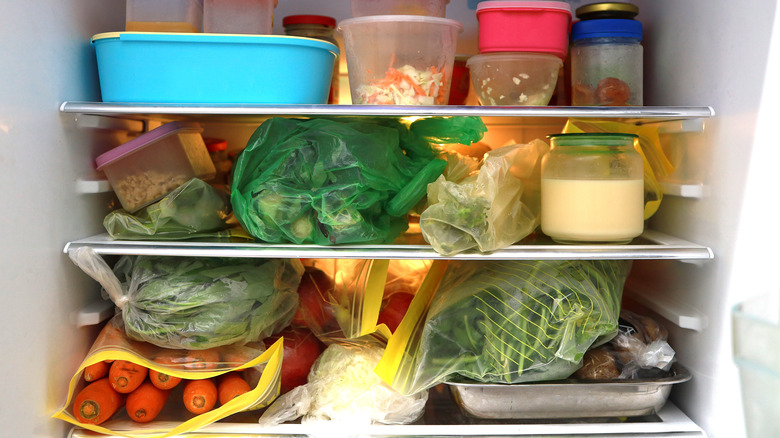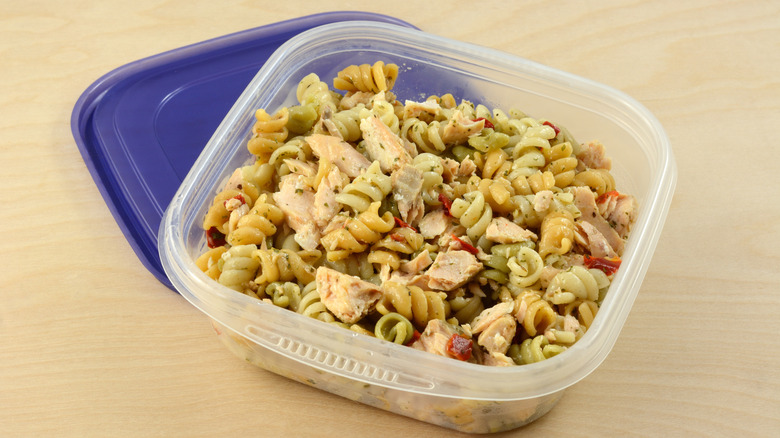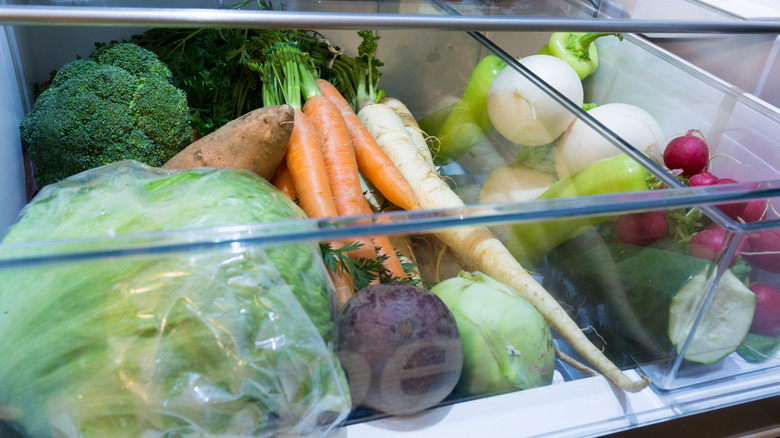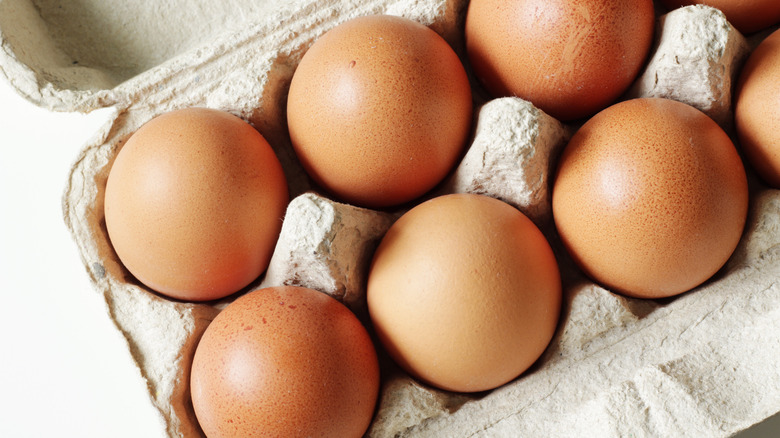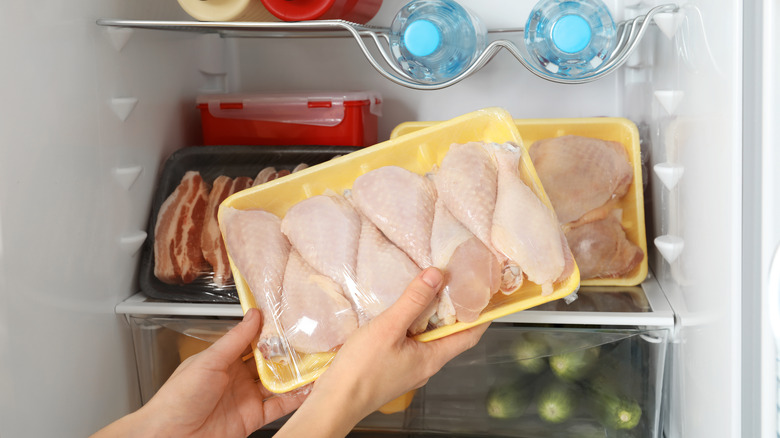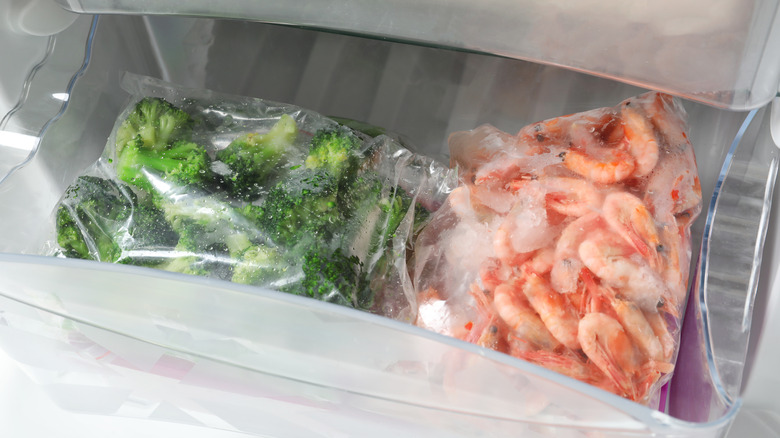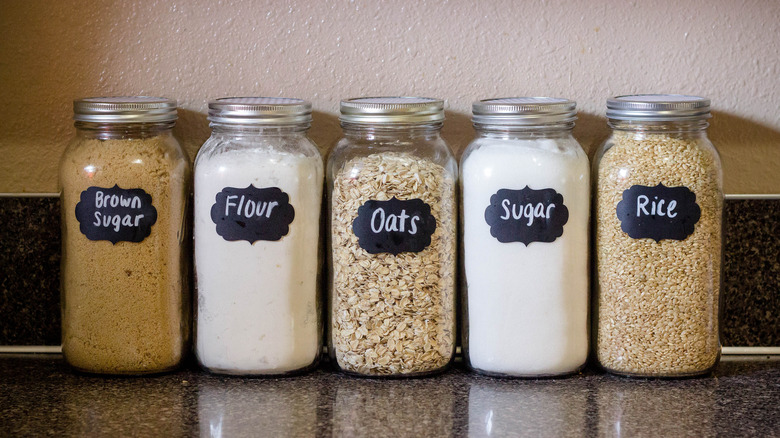Leftovers Guide: How Long Can You Keep It?
Whether you were overzealous when making dinner, or opted for a night out instead of cooking that fish fillet, we've all been there — stuck with a refrigerator full of leftovers. From the best way to store fresh herbs like basil and cilantro to how long a cut onion will last in the fridge, we've compiled a list of common leftovers and how long you can safely keep them.
Follow the guidelines closely, and as a general rule, if you're worried about something, it's safer to throw it out than risk getting a foodborne illness.
Cooked food and salads
Cooked Food: Leftover, cooked foods should be kept in the refrigerator in an airtight container and eaten within 4-5 days. Food, whether cooked or not, should not be left at room temperature for more than 4 hours otherwise the risk of food poisoning increases. If foods are in an abnormally hot room, then the time should be greatly reduced as bacteria grow in warmer temperatures. When storing food in the refrigerator or freezer, make sure it's in an airtight container or bag.
Prepared Salads: These salads, like tuna or chicken, can generally be stored for up to 3-4 days in the refrigerator.
Produce
Fresh Herbs: These fragrant and perfumed ingredients are best stored unwashed, wrapped in a slightly damp paper towel and placed in plastic or Ziploc bag. Depending on the herb, they will last anywhere from 4 days (basil) to 7 (cilantro). Of course, as with all of the ingredients here, fresh is always better.
Lettuce: Leftover washed lettuce can be stored in a similar fashion to herbs, wrapped in paper towel and placed in a plastic bag in the refrigerator for up to 3-4 days.
Mushrooms: When buying fresh mushrooms, generally you want to choose ones that are firm. You can refrigerate them for up to 5 days as long as they are stored properly — wrapped in a paper towel and then sealed inside a plastic bag.
Fresh Beans/Peas: Depending on the variety, they can be kept, tightly wrapped, in the refrigerator for 3-5 days.
Onions: Once cut into, they should be tightly wrapped and stored in an airtight container in the refrigerator and used within 4 days.
Potatoes: Stored in a cool, dark place, generally most potatoes will keep for up to 2 weeks while new potatoes should be used within a few days.
Sweet Potatoes: Can be stored for 3-4 weeks in a cool, dark place.
Eggs and cheese
Eggs: Fresh eggs should always be refrigerated if not used immediately because they lose quality quickly when stored at room temperature. While best used within a week, they can be stored for up to 3-4 weeks in the refrigerator. (Try to avoid placing them near smelly ingredients like onions or garlic because they easily absorb odors.) Cooked eggs should be used within one week.
Cheese: There are certain cheeses like Gorgonzola or Roquefort that have mold that is safe to eat, but never eat mold on soft or fresh cheeses like Brie or mozzarella — they should be immediately thrown away. These types of cheeses can generally be stored tightly wrapped and in a plastic bag in the refrigerator for up to 2 weeks. (The bottom drawers or coldest part of your refrigerator are generally the best places to store these types of cheese.)
For semi-soft or firm cheeses like Cheddar or Gouda, if mold appears, then remove the mold (and the chunk that surrounds it) and tightly rewrap and store. These types of cheeses can be kept for 2-3 weeks in the refrigerator. (They don't need to be in the coldest part of the refrigerator.)
Meat
Poultry/Ground Meats/Stew Meats/Lamb or Pork Chops: These raw ingredients can be kept, wrapped well, in the refrigerator for 1-2 days.
Steak/Roasts/Large Cuts of Meat: These cuts of meat can be kept for up to 3-4 days in the refrigerator as long as they are wrapped tightly.
Fish and shellfish
Most seafood is best consumed as fresh as possible and should only be refrigerated for up to 2 days before use.
Fresh mussels: Whether live or shucked, mussels should be refrigerated and used in 1-2 days.
Crab: Raw crabmeat should be cooked within a day of the crab dying, while pasteurized or canned crabmeat should be eaten within 4 days of opening.
Lobsters: Should be cooked live or killed immediately before cooking. (Quick tip: When buying a whole cooked lobster, make sure that the tail is curled, which is a sign that it was alive when killed — meaning it's very fresh)
Oysters: Live ones can be refrigerated for up to 3 days, though the fresher they are, the better they'll taste. Shucked oysters can be refrigerated and used within 2 days.
Scallops/Shrimps: Raw scallops and shrimp should be tightly covered, refrigerated and used within 2 days. Cooked shrimp can be refrigerated for up to 3 days.
Grains
Flour: Flour can be stored for up to 6 months at room temperature because higher temperatures create a hospitable environment to bugs and mold. (It's not a bad idea to store it inside a plastic bag just to be safe in case you forget to throw it out in time.)
Rice: No matter what type of rice, it should be stored in a cool, dark place (much like oils, wine, and spices). White rice can be stored almost indefinitely, while brown rice will only keep up to 6 months.
